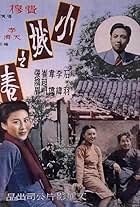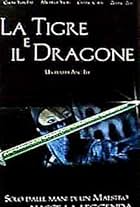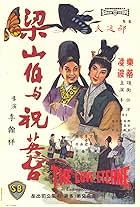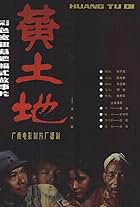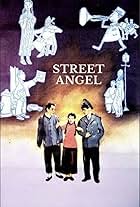影史百大华语电影 100 Greatest Chinese-Language Films
华语电影近年在国际影坛受到的注目,有目共睹。但相较于那些被忽视、被遗忘的杰作,这些成果只是被挖掘出的一角而已。金马奖作为影坛历史最悠久、奖励区域最广的华语电影奖项,犹难呈现完整版图,因此“台北金马影展执行委员会”邀请华语电影专家及杰出影人,票选出“影史百大华语电影”。
受邀的票选者,以台湾为主;另外还包括香港、大陆影人,以及海外的华语电影专家。不同于其他类似票选皆以电影研究者(学者、影评人、策展人)为主,或者最多加入导演看法(例如最资深的Sight & Sound杂志从1952年起每十年选拔一次影史十大影片,前四届都以影评人意见为结论,自1992年起才另增导演),“影史百大华语电影”票选除了邀请上述影评及导演,也增加了编剧、制片、演员、以及其他幕后影人、甚至长期关注影坛发展的艺文界人士。而且除了资深权威,也试图加入年轻世代的意见。每位票选者,就影史初始时期到票选展开(2010年8月)已完成的所有华语影片,不限出品地、规格、类型,不分排名,最多可提出30部的片单,供主办单位统计。
结果,共有482部影片获得推荐。票数最高的是《悲情城市》(1989),前十名还包括《牯岭街少年杀人事件》(1991)、《童年往事》(1985)、《阿飞正传》(1990)、《小城之春》(1948)、《卧虎藏龙》(2000)、《一一》(2000)、《恋恋风尘》(1986)、《龙门客栈》(1967)、《花样年华》(2000)。“百大”当中,完成时间最早的是1933年的《小玩意》;最新的则是2009年的《不能没有你》。另外,主办单位也依据所有得票影片,计算出“五十大华语导演”,某些因作品众多导致票数分散的导演,得以在此得到部分“平反”,加总后排名前十则是侯孝贤、杨德昌、王家卫、李安、胡金铨、张艺谋、蔡明亮、李行、许鞍华、陈凯歌、关锦鹏。
面对浩瀚影海,许多受邀者都自谦难以顾全整个影史,甚至因此婉拒了投票。毕竟除了政治、历史的乖隔,曾教不同地区的华语电影有很长时间难以交流;而影史整理的艰难残漏(包括论述研究与影片保存),也让即使交流频繁了,仍有不少尚待补齐的新旧史页。电影史的写法不只一种,或许我们可以把这次活动当成一个尝试,透过122位专业人士的分享,“百大”名单等同他们心中华语影史重要作品的最大交集。但请不要忽略每位票选者的各自名单,除了足以探究不同品味与角度外,那些被个别专家奉为经典的遗珠,说不定就是亟待认识的瑰宝。
因此,“影史百大华语电影”的票选结果,不会只是一份名单,还有一本将于2011年8月份出版的中英对照的专书。它的问世除了要感谢在影史影响与心头所爱之间反覆挣扎的票选者与撰稿人;更要感激这一百部电影背后的创造者们,因为您们的创意,启发了无数人在爱电影、拍电影的路上,有了继续向前的标竿。
In recent years we have witnessed the increasing attention that the Chinese-language films have attracted at the international film festivals. However in contrast to the large amount of neglected and forgotten masterpieces, these films which gained international recognition are just a small fraction of hidden treasure. Even the Golden Horse Awards which is the most prestigious and longest-running festival in all Chinese-speaking territories cannot present the whole picture. Therefore the Taipei Golden Horse Film Festival Executive Committee decided to invite the Chinese-language cinema experts and outstanding film-makers to vote for the ‘100 Greatest Chinese-language Films’ of all time.
People who were invited to cast their votes are based mainly in Taiwan but film-makers from Hong Kong and China and Chinese-language cinema experts worldwide are also included on the list. What is unique about the our list is that unlike some similar selections in which the participants are mostly film scholars, critics or festival programmers and probably a few film directors, we invited not only professionals mentioned above but scriptwriters, producers, actors, crew members and people working in art and literature. More significantly, both the established figures and young film-makers have cast their votes in this poll. Every single Chinese-language film completed before August 2010 is qualified and each voter gave their choices of up to 30 films (not in any order) to the Golden Horse Committee for the final counts.
The result has come out – 482 films are recommended. A City of Sadness (1989) got the most votes and the other films in the top ten include A Brighter Summer Day (1991), A Time to Live, A Time to Die (1985), Days of Being Wild (1990), Spring in a Small Town (1948), Crouching Tiger, Hidden Dragon (2000), Yi Yi: A One and a Two (2000), Dust in the Wind (1986), Dragon Inn (1967) and In the Mood for Love (2000). Amongst the ‘100 Greatest’, the earliest one, Little Toys, dates back to 1933 while the latest is No Puedo Vivir Sin Ti made in 2009. Furthermore, based on the votes each director has received the Committee published the ‘50 Greatest Chinese-language Film Directors’. This gives some prolific directors whose votes spread over their films the recognition they deserve. The directors who made into the top ten are HOU Hsiao-Hsien, Edward YANG, WONG Kar-Wai, Ang LEE, King HU, ZHANG Yi-Mou, TSAI Ming-Liang, LEE Hsing, Ann HUI, CHEN Kai-Ge and Stanley KWAN.
Many people who were invited to vote expressed their concern that their knowledge in Chinese-language cinema might not be good enough to judge all films made throughout the history. Some of them even turned down our invitation for this very reason. As a result of the political and historical barriers, the interaction between film industries in different Chinese-speaking territories had ceased for decades. This makes compiling the history of Chinese-language cinema even more difficult (both in terms of research methodology and film preservation). Even after the interaction resumed more than ten years ago, the picture remained incomplete. We believe that there is more than one way to write the history and perhaps we could view this selection as an attempt. The ‘100 Greatest’ are the films which received the unanimous appreciation from 122 professionals however we hope that the readers would be encouraged to look into the rest of the recommended films. These films may not only broaden our taste and provide different viewpoints but prove to be the long-forgotten hidden treasure.
Therefore the result of the vote for the ‘100 Greatest Chinese-language Films’ will not end with a just list but a book. Both Chinese and English is scheduled to be published in August 2011. We would like to thank not only the voters and the reviewers who had made difficult decisions in selecting films but also the film-makers who made these films. Their creativity has inspired countless cineastes and set a great example for us to follow.
受邀的票选者,以台湾为主;另外还包括香港、大陆影人,以及海外的华语电影专家。不同于其他类似票选皆以电影研究者(学者、影评人、策展人)为主,或者最多加入导演看法(例如最资深的Sight & Sound杂志从1952年起每十年选拔一次影史十大影片,前四届都以影评人意见为结论,自1992年起才另增导演),“影史百大华语电影”票选除了邀请上述影评及导演,也增加了编剧、制片、演员、以及其他幕后影人、甚至长期关注影坛发展的艺文界人士。而且除了资深权威,也试图加入年轻世代的意见。每位票选者,就影史初始时期到票选展开(2010年8月)已完成的所有华语影片,不限出品地、规格、类型,不分排名,最多可提出30部的片单,供主办单位统计。
结果,共有482部影片获得推荐。票数最高的是《悲情城市》(1989),前十名还包括《牯岭街少年杀人事件》(1991)、《童年往事》(1985)、《阿飞正传》(1990)、《小城之春》(1948)、《卧虎藏龙》(2000)、《一一》(2000)、《恋恋风尘》(1986)、《龙门客栈》(1967)、《花样年华》(2000)。“百大”当中,完成时间最早的是1933年的《小玩意》;最新的则是2009年的《不能没有你》。另外,主办单位也依据所有得票影片,计算出“五十大华语导演”,某些因作品众多导致票数分散的导演,得以在此得到部分“平反”,加总后排名前十则是侯孝贤、杨德昌、王家卫、李安、胡金铨、张艺谋、蔡明亮、李行、许鞍华、陈凯歌、关锦鹏。
面对浩瀚影海,许多受邀者都自谦难以顾全整个影史,甚至因此婉拒了投票。毕竟除了政治、历史的乖隔,曾教不同地区的华语电影有很长时间难以交流;而影史整理的艰难残漏(包括论述研究与影片保存),也让即使交流频繁了,仍有不少尚待补齐的新旧史页。电影史的写法不只一种,或许我们可以把这次活动当成一个尝试,透过122位专业人士的分享,“百大”名单等同他们心中华语影史重要作品的最大交集。但请不要忽略每位票选者的各自名单,除了足以探究不同品味与角度外,那些被个别专家奉为经典的遗珠,说不定就是亟待认识的瑰宝。
因此,“影史百大华语电影”的票选结果,不会只是一份名单,还有一本将于2011年8月份出版的中英对照的专书。它的问世除了要感谢在影史影响与心头所爱之间反覆挣扎的票选者与撰稿人;更要感激这一百部电影背后的创造者们,因为您们的创意,启发了无数人在爱电影、拍电影的路上,有了继续向前的标竿。
In recent years we have witnessed the increasing attention that the Chinese-language films have attracted at the international film festivals. However in contrast to the large amount of neglected and forgotten masterpieces, these films which gained international recognition are just a small fraction of hidden treasure. Even the Golden Horse Awards which is the most prestigious and longest-running festival in all Chinese-speaking territories cannot present the whole picture. Therefore the Taipei Golden Horse Film Festival Executive Committee decided to invite the Chinese-language cinema experts and outstanding film-makers to vote for the ‘100 Greatest Chinese-language Films’ of all time.
People who were invited to cast their votes are based mainly in Taiwan but film-makers from Hong Kong and China and Chinese-language cinema experts worldwide are also included on the list. What is unique about the our list is that unlike some similar selections in which the participants are mostly film scholars, critics or festival programmers and probably a few film directors, we invited not only professionals mentioned above but scriptwriters, producers, actors, crew members and people working in art and literature. More significantly, both the established figures and young film-makers have cast their votes in this poll. Every single Chinese-language film completed before August 2010 is qualified and each voter gave their choices of up to 30 films (not in any order) to the Golden Horse Committee for the final counts.
The result has come out – 482 films are recommended. A City of Sadness (1989) got the most votes and the other films in the top ten include A Brighter Summer Day (1991), A Time to Live, A Time to Die (1985), Days of Being Wild (1990), Spring in a Small Town (1948), Crouching Tiger, Hidden Dragon (2000), Yi Yi: A One and a Two (2000), Dust in the Wind (1986), Dragon Inn (1967) and In the Mood for Love (2000). Amongst the ‘100 Greatest’, the earliest one, Little Toys, dates back to 1933 while the latest is No Puedo Vivir Sin Ti made in 2009. Furthermore, based on the votes each director has received the Committee published the ‘50 Greatest Chinese-language Film Directors’. This gives some prolific directors whose votes spread over their films the recognition they deserve. The directors who made into the top ten are HOU Hsiao-Hsien, Edward YANG, WONG Kar-Wai, Ang LEE, King HU, ZHANG Yi-Mou, TSAI Ming-Liang, LEE Hsing, Ann HUI, CHEN Kai-Ge and Stanley KWAN.
Many people who were invited to vote expressed their concern that their knowledge in Chinese-language cinema might not be good enough to judge all films made throughout the history. Some of them even turned down our invitation for this very reason. As a result of the political and historical barriers, the interaction between film industries in different Chinese-speaking territories had ceased for decades. This makes compiling the history of Chinese-language cinema even more difficult (both in terms of research methodology and film preservation). Even after the interaction resumed more than ten years ago, the picture remained incomplete. We believe that there is more than one way to write the history and perhaps we could view this selection as an attempt. The ‘100 Greatest’ are the films which received the unanimous appreciation from 122 professionals however we hope that the readers would be encouraged to look into the rest of the recommended films. These films may not only broaden our taste and provide different viewpoints but prove to be the long-forgotten hidden treasure.
Therefore the result of the vote for the ‘100 Greatest Chinese-language Films’ will not end with a just list but a book. Both Chinese and English is scheduled to be published in August 2011. We would like to thank not only the voters and the reviewers who had made difficult decisions in selecting films but also the film-makers who made these films. Their creativity has inspired countless cineastes and set a great example for us to follow.
Elenca attività
9367 visualizzazioni
• 76 questa settimanaCrea una nuova lista
Elenca le tue selezioni di film, TV e celebrità.
- 102 titoli




